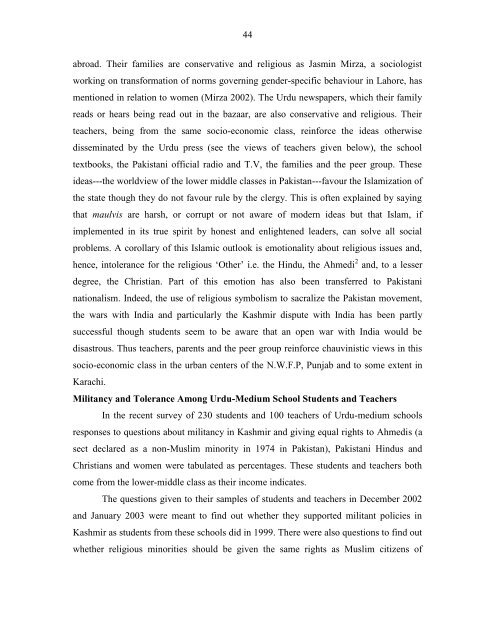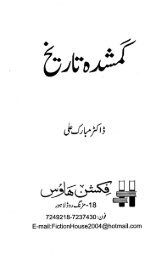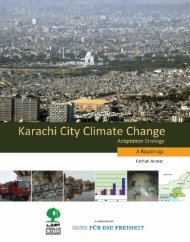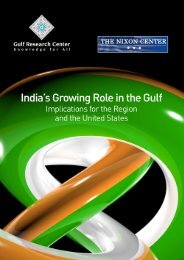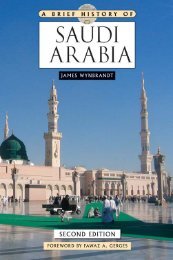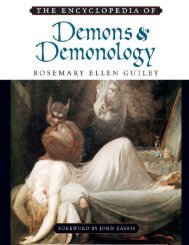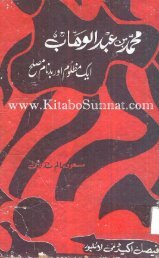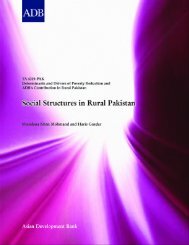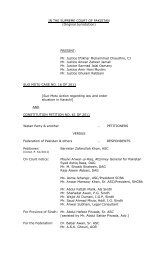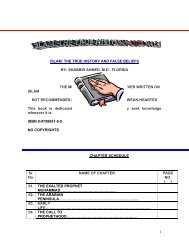DENIZENS OF ALIEN WORLDS
danizen1
danizen1
- No tags were found...
Create successful ePaper yourself
Turn your PDF publications into a flip-book with our unique Google optimized e-Paper software.
44<br />
abroad. Their families are conservative and religious as Jasmin Mirza, a sociologist<br />
working on transformation of norms governing gender-specific behaviour in Lahore, has<br />
mentioned in relation to women (Mirza 2002). The Urdu newspapers, which their family<br />
reads or hears being read out in the bazaar, are also conservative and religious. Their<br />
teachers, being from the same socio-economic class, reinforce the ideas otherwise<br />
disseminated by the Urdu press (see the views of teachers given below), the school<br />
textbooks, the Pakistani official radio and T.V, the families and the peer group. These<br />
ideas---the worldview of the lower middle classes in Pakistan---favour the Islamization of<br />
the state though they do not favour rule by the clergy. This is often explained by saying<br />
that maulvis are harsh, or corrupt or not aware of modern ideas but that Islam, if<br />
implemented in its true spirit by honest and enlightened leaders, can solve all social<br />
problems. A corollary of this Islamic outlook is emotionality about religious issues and,<br />
hence, intolerance for the religious ‗Other‘ i.e. the Hindu, the Ahmedi 2 and, to a lesser<br />
degree, the Christian. Part of this emotion has also been transferred to Pakistani<br />
nationalism. Indeed, the use of religious symbolism to sacralize the Pakistan movement,<br />
the wars with India and particularly the Kashmir dispute with India has been partly<br />
successful though students seem to be aware that an open war with India would be<br />
disastrous. Thus teachers, parents and the peer group reinforce chauvinistic views in this<br />
socio-economic class in the urban centers of the N.W.F.P, Punjab and to some extent in<br />
Karachi.<br />
Militancy and Tolerance Among Urdu-Medium School Students and Teachers<br />
In the recent survey of 230 students and 100 teachers of Urdu-medium schools<br />
responses to questions about militancy in Kashmir and giving equal rights to Ahmedis (a<br />
sect declared as a non-Muslim minority in 1974 in Pakistan), Pakistani Hindus and<br />
Christians and women were tabulated as percentages. These students and teachers both<br />
come from the lower-middle class as their income indicates.<br />
The questions given to their samples of students and teachers in December 2002<br />
and January 2003 were meant to find out whether they supported militant policies in<br />
Kashmir as students from these schools did in 1999. There were also questions to find out<br />
whether religious minorities should be given the same rights as Muslim citizens of


